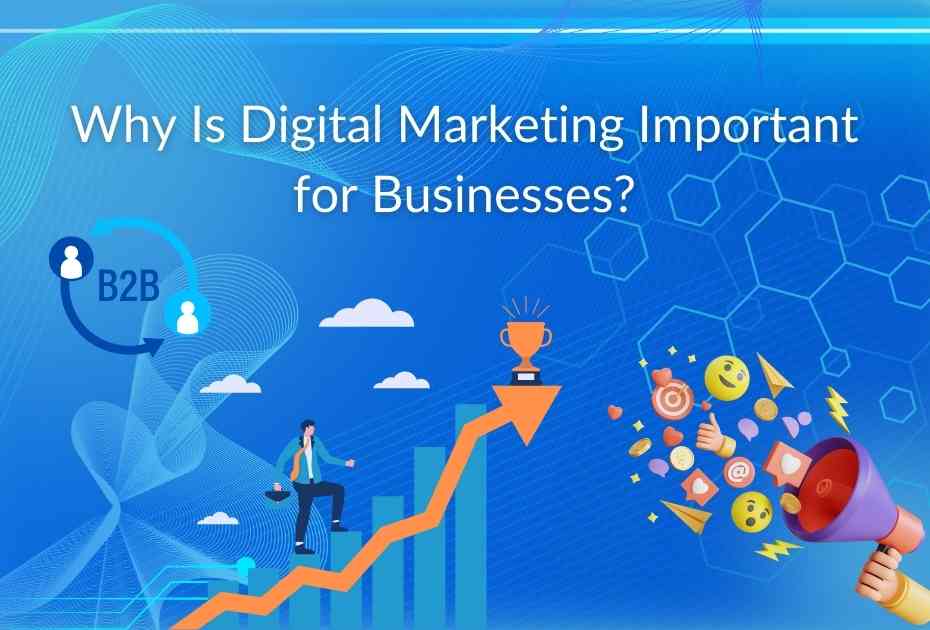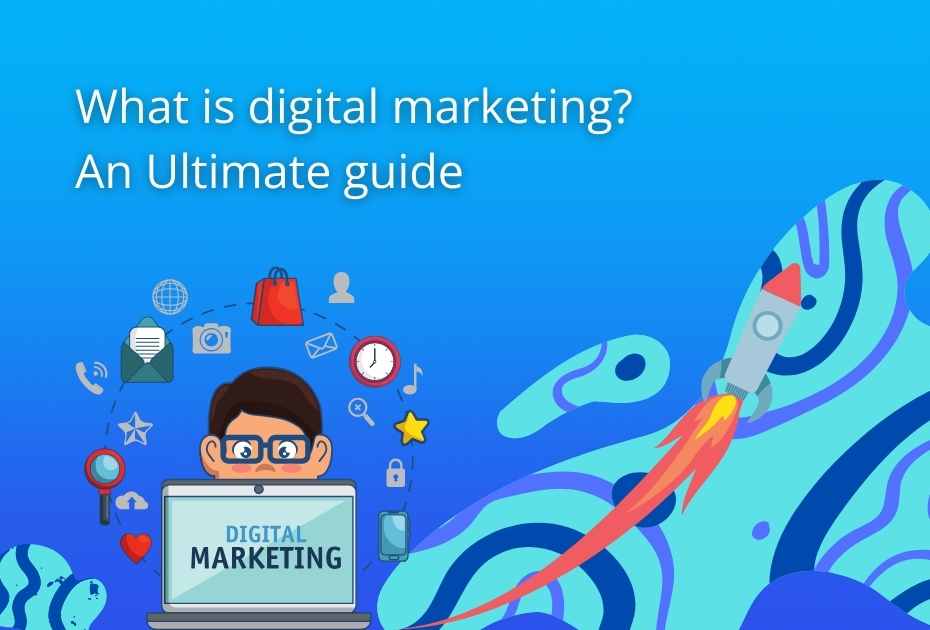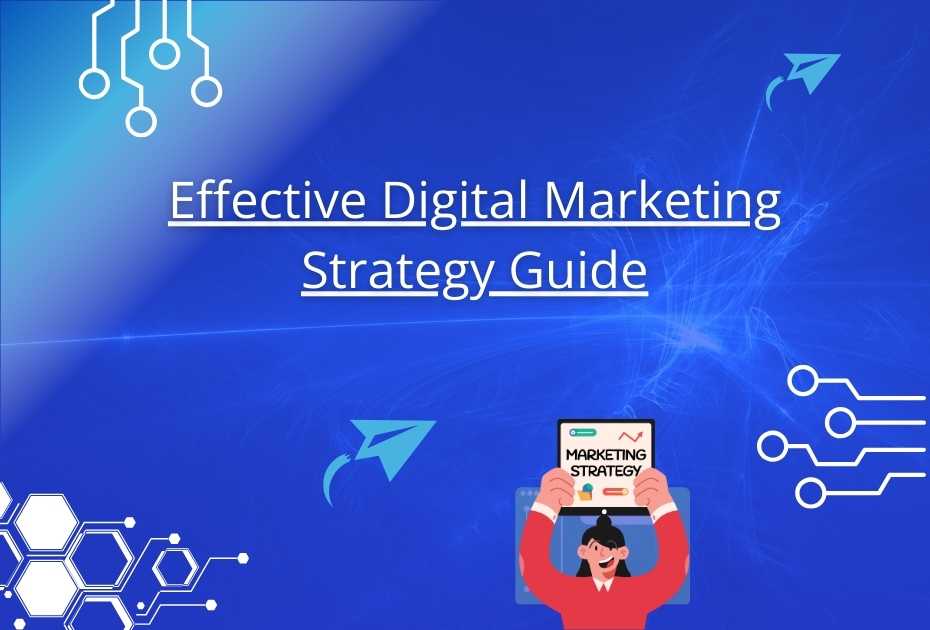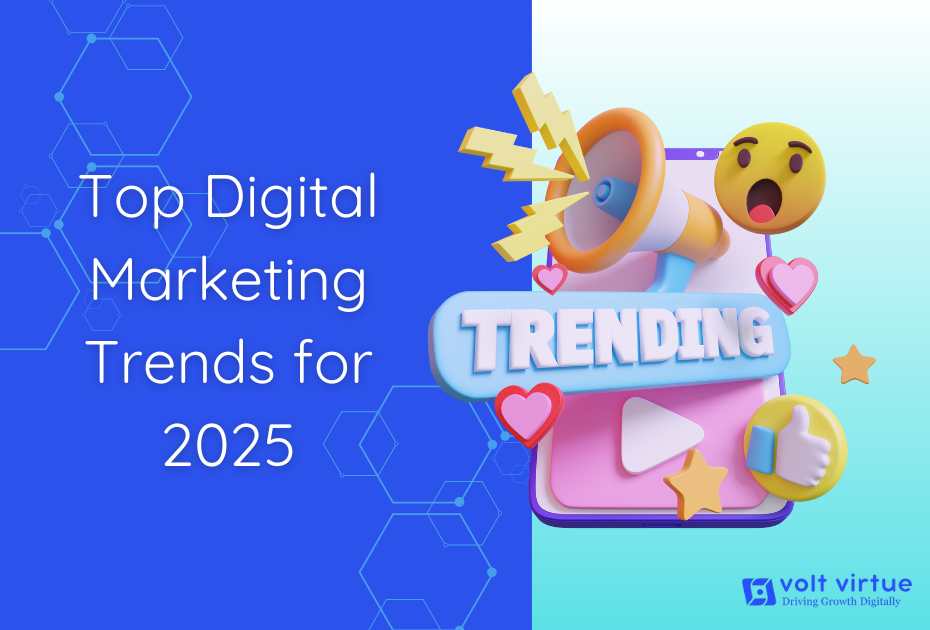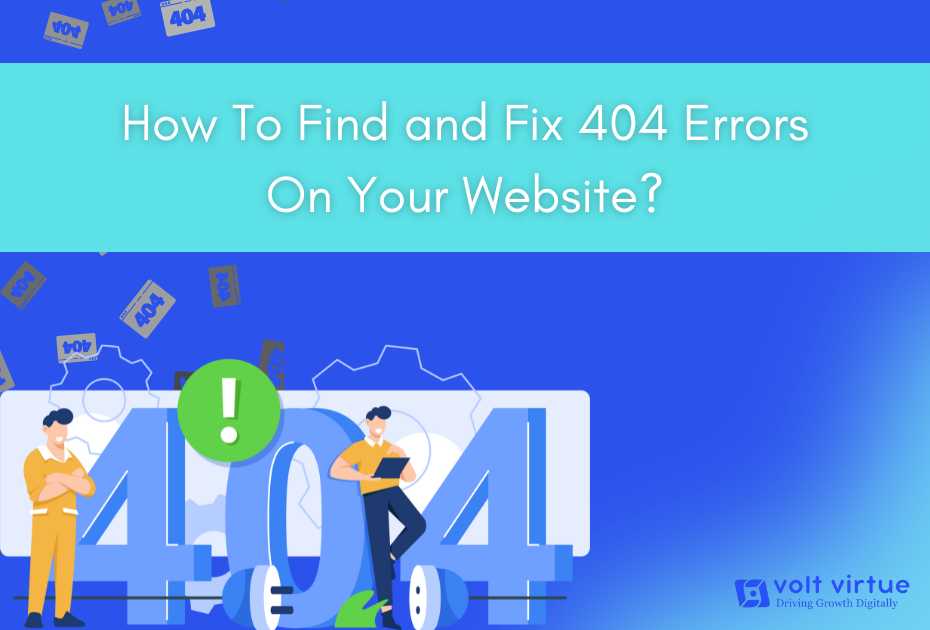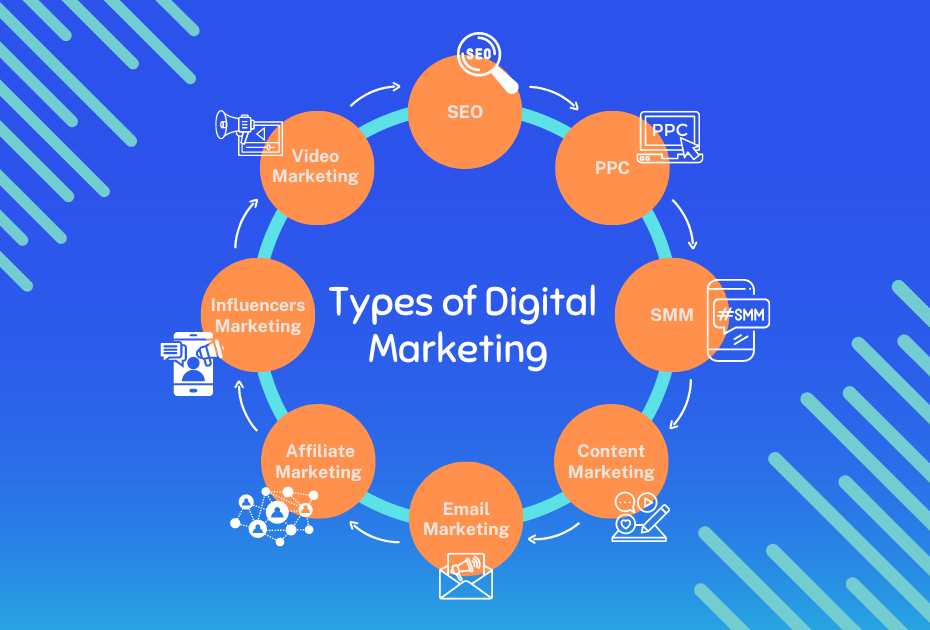
In today’s business landscape, digital marketing has become one of the most essential strategic initiatives. With consumers increasingly relying on the internet for information, it’s essential for businesses to educate their audience about their products and services. By leveraging various digital marketing strategies, you can connect with your target audience through the channels they already frequent. Before diving into the different types of digital marketing, let’s first define what digital marketing is.
What is Digital Marketing?
Digital marketing includes any marketing strategy that leverages electronic devices, whether they are connected to the internet or not. Traditional methods like radio ads and television commercials are also forms of digital marketing, though the field has evolved significantly, with newer strategies proving to be far more effective. In today’s competitive landscape, digital marketing is essential for maintaining relevance in your industry. Without a web or digital presence, your business misses out on countless opportunities to connect with your target audience.
Types of Digital Marketing
1. Search Engine Optimization (SEO)
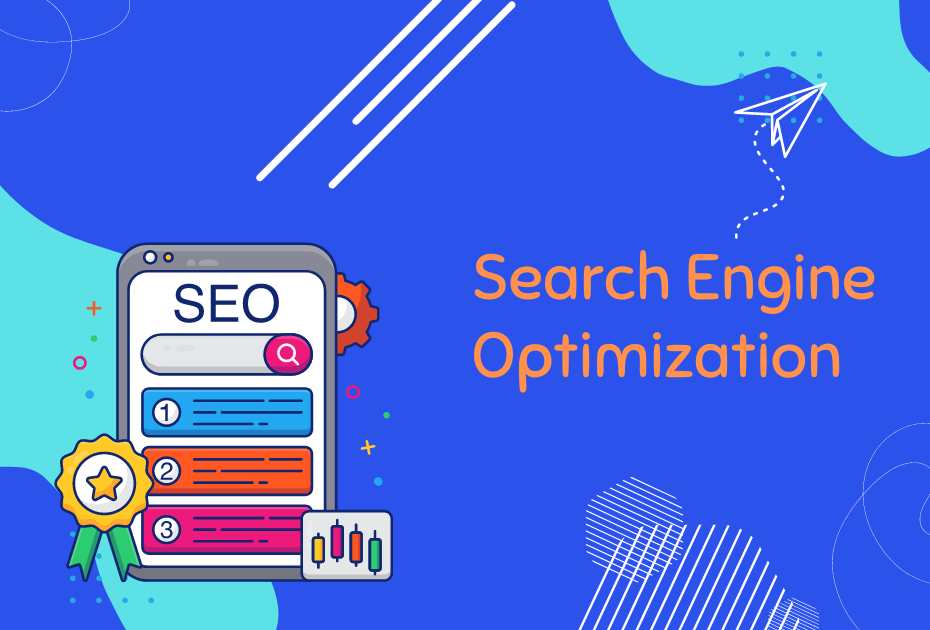
Search engine optimization (SEO) is a technique designed to improve the ranking of online content on search engines like Google or Bing. When you perform a search on Google, you probably notice that even the simplest query can produce millions of results. However, most people rarely venture beyond the first few suggestions, let alone the second page.
SEO is essential because it improves brand visibility by ranking your web pages higher in search engine results for relevant keywords. This increased exposure drives more organic traffic to your website, which can lead to higher conversion rates and improved sales.
In such a competitive space, digital marketers leverage SEO to ensure their web pages rank high in search results, making it easier for potential customers to find their products or services online. SEO typically focuses on organic search terms, where marketers create content that naturally aligns with and ranks for popular search terms related to their products.
Additionally, this traffic and potential new customers are acquired without direct advertising costs, making SEO a highly cost-effective method for generating new leads. SEO also helps build trust with your audience by offering a positive user experience through easy navigation and high-quality content. Furthermore, earning links from credible sources enhances your website’s authority. This trust fosters customer loyalty, leading to a growing number of repeat customers who consistently choose your products or services.
Key SEO tactics include:
- Creating high-quality content that meets searcher intent
- Using keywords to help search engines identify relevant content
- Incorporating long-tail keywords (specific phrases that searchers use) to reach the target audience more effectively
- Ensuring that content loads quickly and is mobile-friendly
2. Pay Per Click
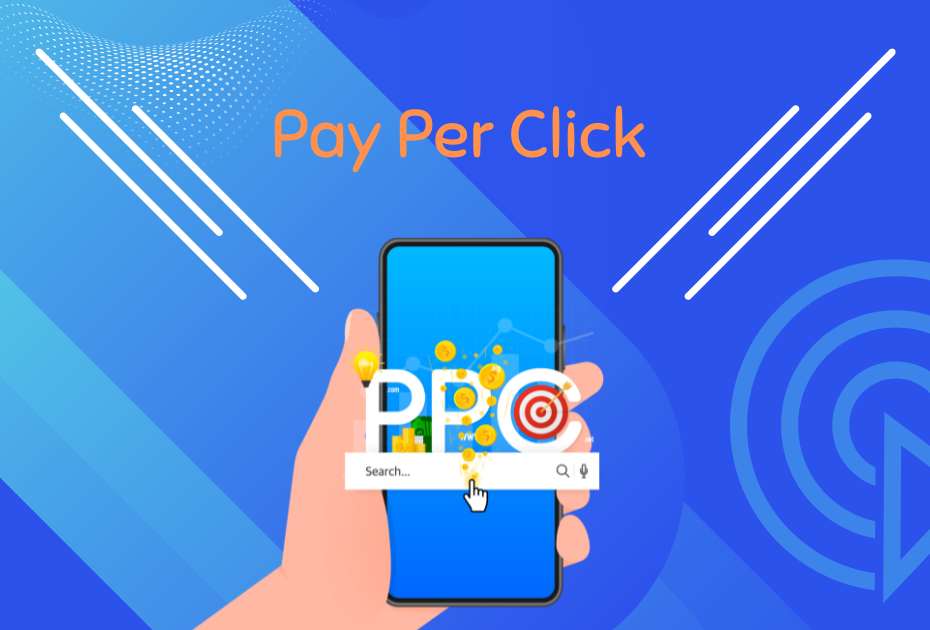
PPC, or Pay-Per-Click, is an online advertising model in which advertisers pay a fee every time someone clicks on their ad. The most common form of PPC is paid search ads, which appear when users conduct searches with commercial intent on platforms like Google.
PPC is vital because it delivers faster results in generating new leads compared to SEO. This makes PPC perfect for short-term customer acquisition, while SEO is better suited for long-term growth.
PPC advertising enables businesses to bid for ad placements on search engines and social media platforms. By targeting specific keywords and demographics, businesses can drive targeted traffic to their websites and only pay when users click on their ads.
PPC advertising provides businesses with instant visibility and control over their ad spend. By strategically selecting keywords, optimizing ad copy, and tracking performance metrics, companies can maximize ROI and achieve their advertising goals with precision and efficiency.
Additionally, PPC campaigns are easy to measure, enabling advertisers to track whether their ads are generating conversions and revenue. Since PPC ads can be quickly adjusted, campaigns can be rapidly adapted to industry trends and developments.
However, PPC is not a sustainable long-term strategy as it requires ongoing investment; traffic stops when the cash flow stops. Mismanagement of PPC campaigns can lead to costly bidding wars over keywords, further straining budgets.
3. Social Media Marketing
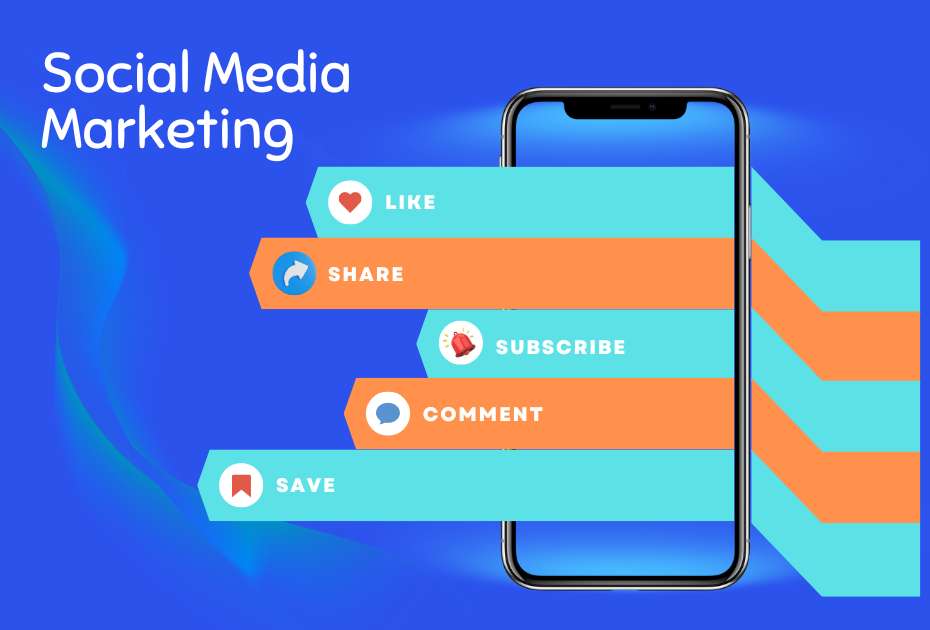
Social media marketing involves using platforms like Facebook, Twitter, LinkedIn, Instagram, Pinterest, and more to engage with customers, build your brand, drive website traffic, and boost sales.
With 52% of online brand discovery happening through social media channels, the significance of social media marketing for businesses cannot be overstated.
But why is social media so crucial? It helps build trust with both customers and search engines by establishing your website as a legitimate business. This increased trust makes customers more likely to purchase from you, and search engines less likely to penalize your organic traffic during core algorithm updates, as social traffic indicates a trusted online presence.
Social media marketing also supports your SEO efforts. Sharing your website content on social platforms increases its visibility, leading to more engagement and positive user signals, which can indirectly improve your site’s rankings in search results. Additionally, the broader exposure creates more opportunities to gain backlinks, further enhancing your SEO.
This approach enables businesses to humanize their brand and cultivate authentic relationships with their audience. Through strategic content creation and consistent interaction, companies can foster trust and loyalty among their followers, ultimately leading to higher conversions and increased sales.
Each platform has its own set of guidelines for marketing your product or service, necessitating a tailored approach and strategy. For instance, blog content may perform well on one platform, while a simple picture might reach a wider audience on another. Additionally, some platforms thrive solely on video content. It’s essential to identify your audience and tailor your content accordingly.
The significant growth of social media marketing highlights that B2B companies have increasingly moved from traditional broadcast media to platforms like LinkedIn, which allows them to better engage with customers and build long-term relationships.
Ultimately, social media marketing is essential for increasing brand awareness by expanding your reach and exposure.
However, it’s important to consider that social media marketing can be time and resource-intensive. Without proper planning and resource allocation, it can become overwhelming and less effective. Additionally, capturing users’ attention has become increasingly challenging, which may impact the return on investment from social media marketing efforts.
4. Content Marketing
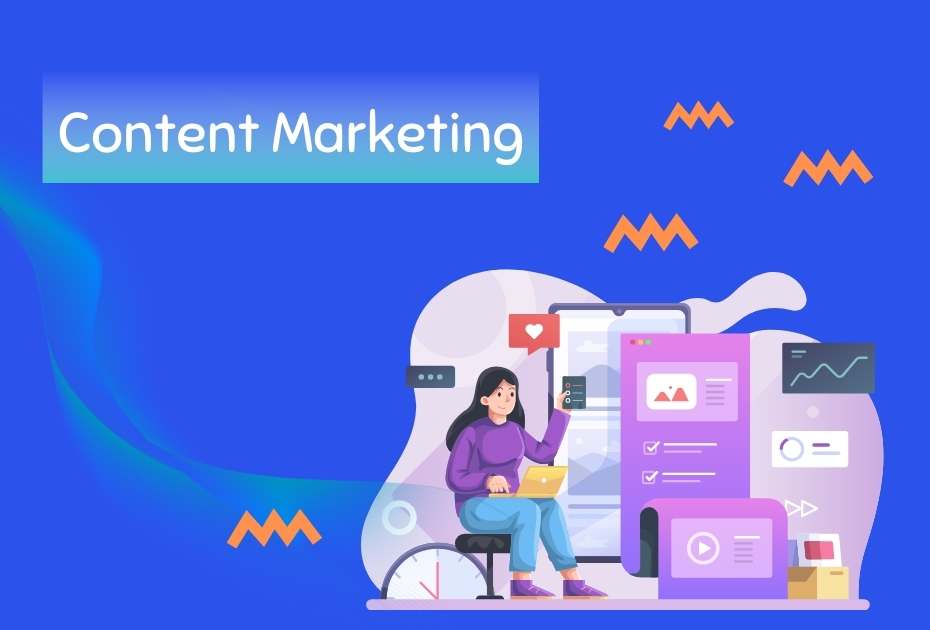
Content marketing is a strategic approach to attracting, engaging, and retaining an audience by creating and sharing relevant, valuable, and consistent content. This content can include blogs, videos, social media posts, podcasts, infographics, and more.
Content marketing is essential because it can establish your expertise, build trust, promote brand awareness, increase traffic, attract new customers, and ultimately boost revenue.
By using blog posts to target informational keywords that align with your business goals and resonate with your target audience, you can drive more organic traffic to your website. This increased visibility can lead to new customers who may have never encountered your brand before, resulting in higher conversions, sales, and revenue.
Additionally, content marketing may not yield immediate results, as it requires ongoing refinement to perfect the tone, quality, and target audience that best resonates with your content.
To make content marketing strategies effective, it’s important to consider the audience you want to reach. Quality content does more than just sell products; it enhances brand image, builds trust, and encourages customer loyalty. In digital marketing, the success of your efforts largely depends on having the right content for your business.
Content marketing is about providing your audience with valuable information through various content forms. However, it’s crucial to tailor content for specific formats, particularly for mobile users, such as push notifications and apps. Different channels may require distinct content formats. Always consider the format, channel, and content type when developing your marketing strategy to achieve your goals.
5. Email Marketing
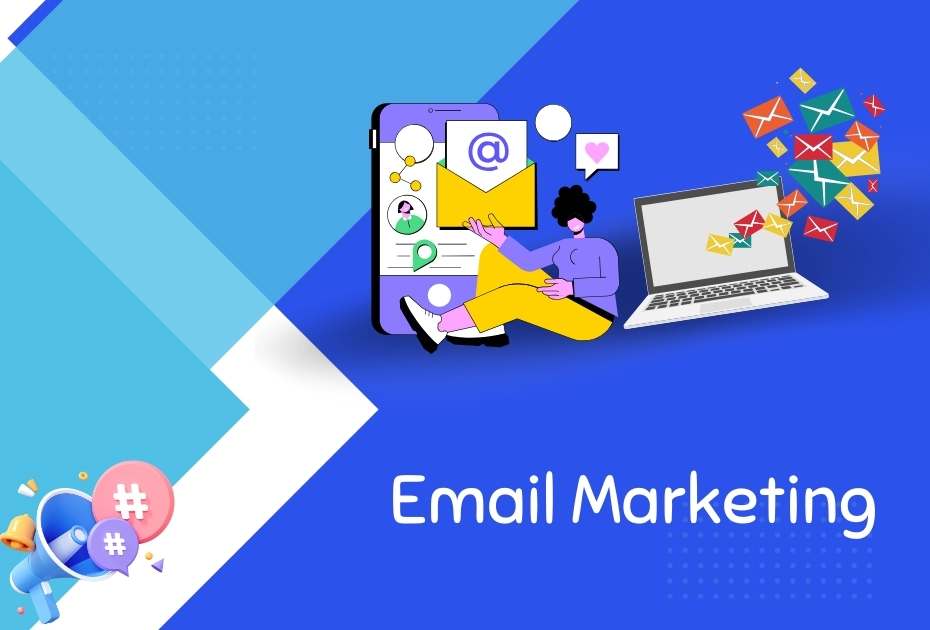
Email marketing involves sending emails to potential clients to promote your business. Companies can use this strategy to send newsletters that users can sign up for or share regular updates about their products or services. Email marketers, a highly sought-after type of digital marketer, are responsible for sending emails to hundreds of users, informing them about the latest deals, discounts, sales, and product launches.
The most effective email marketing campaigns are those where businesses gain organic subscribers through valuable content rather than paid techniques. Users who subscribe voluntarily are more likely to engage with the brand and remain loyal.
Email marketing is also a powerful tool for gathering honest feedback from customers and increasing brand awareness. When used strategically, it can generate a higher return on investment (ROI) for every dollar spent.
Common examples of email marketing campaigns include blast emails to inform users about upcoming events, timed emails to boost brand awareness during festive or holiday seasons, and targeted emails that deliver personalized messages to specific audiences.
6. Affiliate Marketing
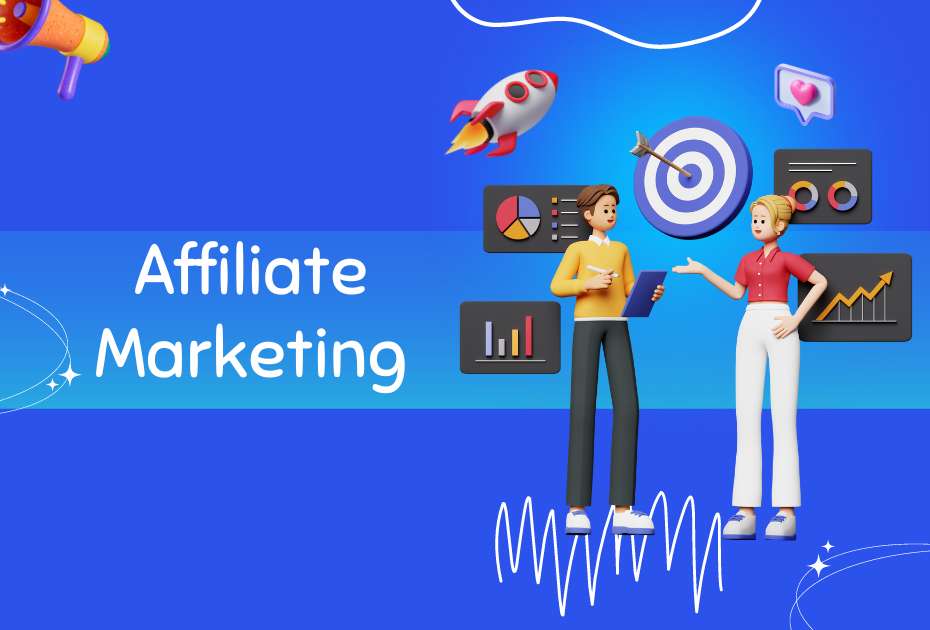
Affiliate marketing is a digital marketing strategy that enables individuals to earn money by promoting another business’s products or services. You can either be the promoter (affiliate) or the business (merchant) partnering with the affiliate, but the process remains consistent.
This tactic operates on a revenue-sharing model. As an affiliate, you earn a commission every time someone purchases the product you promote. As a merchant, you pay the affiliate for each sale they generate on your behalf.
Some affiliates focus on promoting products from a single company, often through a blog or another third-party platform. Others collaborate with multiple merchants, diversifying their promotional efforts.
Whether you’re interested in becoming an affiliate or looking to recruit one, the first step is establishing a connection with the other party. You can use digital platforms specifically designed to link affiliates with retailers or participate in a single-retailer program.
If you’re a retailer working directly with affiliates, it’s crucial to make your program appealing to potential promoters. This involves equipping affiliates with the necessary tools for success, including incentives for top performance and providing marketing resources and ready-made promotional materials.
7. Influencers Marketing
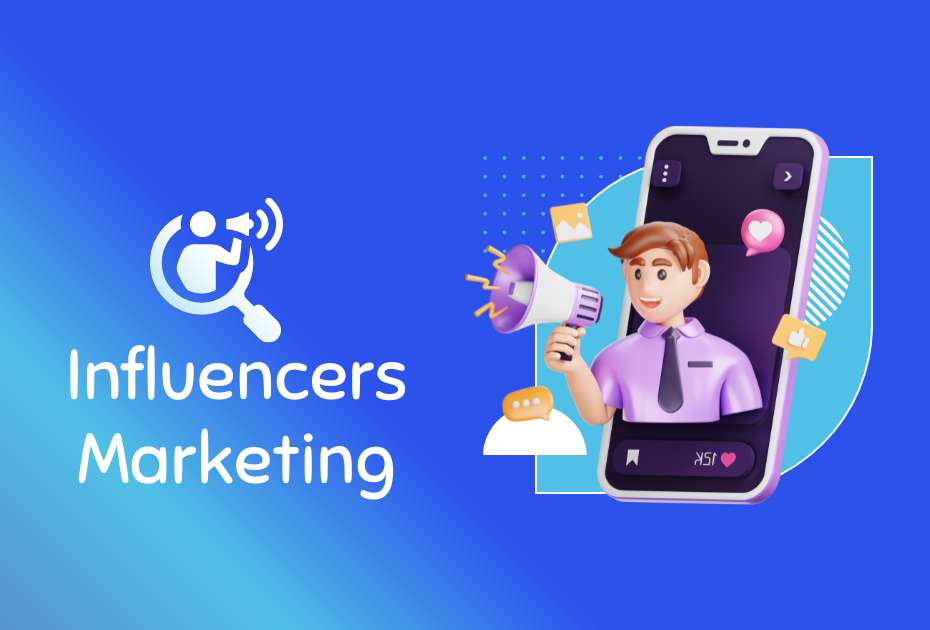
Influencer marketing involves promoting products and services by partnering with influencers or popular personalities who have a large social media following. As one of the rapidly growing digital marketing strategies, it leverages the reach and credibility of these individuals to create a significant impact on potential customers and drive them toward a brand.
In essence, businesses collaborate with influencers, who act as brand ambassadors, sharing videos, photos, content, or endorsements on their social media platforms.
These influencers encourage their followers to try a specific product, thereby increasing brand awareness. However, it’s important to note that businesses don’t need to hire celebrities exclusively. Smaller brands can also work with social media personalities who have loyal and engaged followings. When executed well, influencer marketing can deliver significant results.
8. Video Marketing
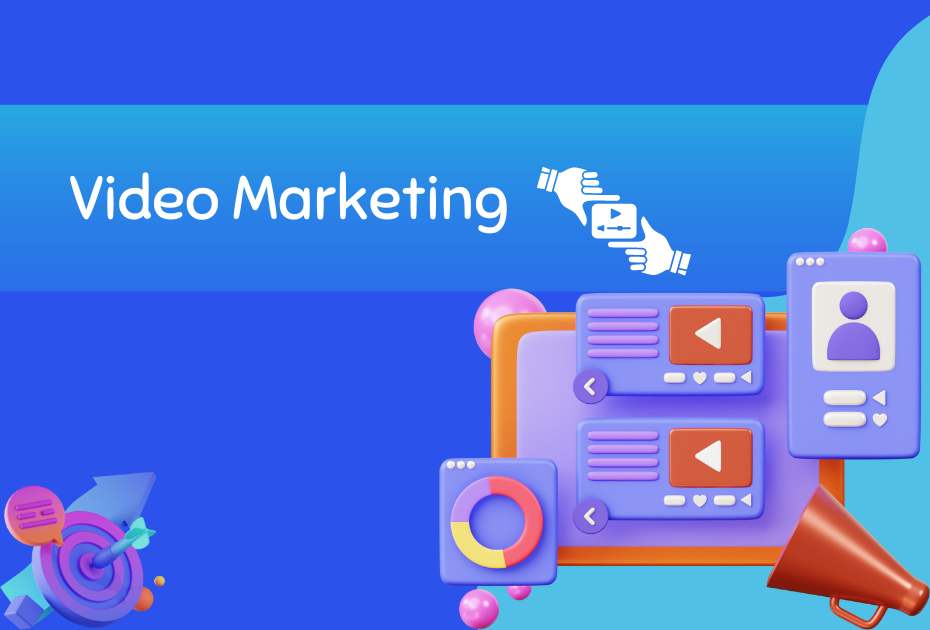
Video marketing is the practice of creating and sharing video content to engage, educate, and connect with your audience. Whether it’s product demonstrations, behind-the-scenes glimpses, or storytelling, video marketing provides a dynamic and versatile medium for promoting your brand.
As consumer preferences shift towards video content over traditional media, video marketing has become increasingly popular. By integrating video into your marketing strategy, you can capture your audience’s attention, showcase your brand’s personality, and deliver your message in a compelling and memorable way.
Key Performance Indicators (KPIs) in Digital Marketing
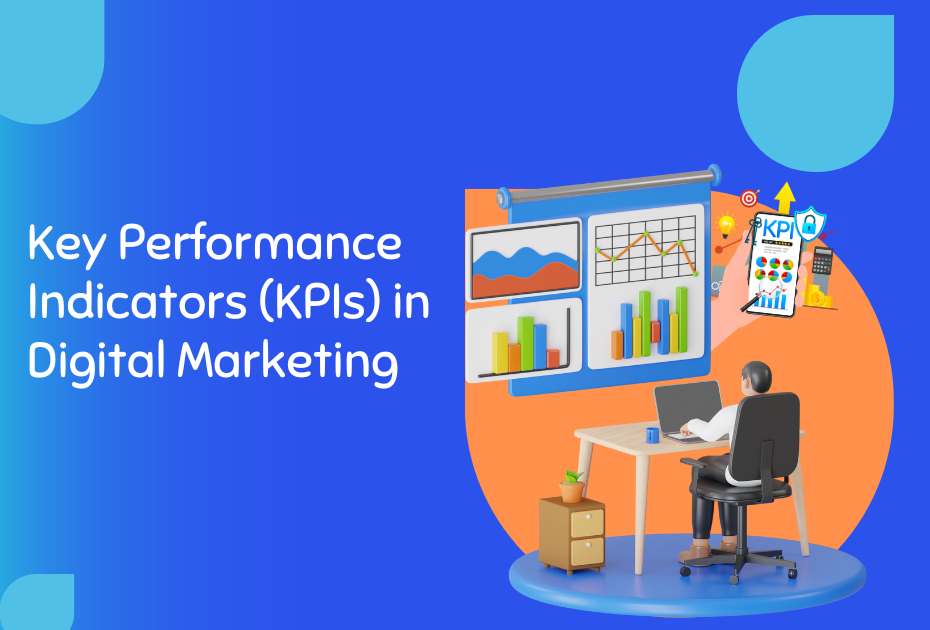
Digital marketers, like traditional marketers, use key performance indicators (KPIs) to evaluate the long-term effectiveness of their marketing efforts and benchmark them against competitors.
Here are some of the most common KPIs used to evaluate digital marketing performance:
- Click-Through Rate (CTR): This KPI measures the effectiveness of online advertising by calculating the percentage of people who clicked on a particular ad compared to the total number of people who saw it.
- Conversion Rate: Beyond CTR, the conversion rate measures the percentage of people who completed a desired action, such as making a purchase, compared to the total audience reached by a specific ad or promotion.
- Social Media Traffic: This metric tracks interactions with a company’s social media profiles, including likes, follows, views, shares, and other measurable actions, helping to gauge the effectiveness of social media engagement.
- Website Traffic: This KPI monitors the number of visitors to a company’s website over a specific period, providing insights into how well marketing efforts are driving traffic to the site.
Conclusion
Digital marketing is important for businesses because it offers numerous opportunities to connect with their target audiences. Each digital marketing strategy serves a unique purpose and is tailored to meet specific business objectives.
Whether your goal is to boost sales, increase brand visibility, or drive website traffic, there’s a digital marketing service that can help you achieve it. Staying informed about market trends and adapting to changes will give you an edge over the competition. Tap into your business’s full potential with our expert digital marketing services, tailored to meet your unique needs. Partner with us to acquire the skills and strategies necessary to elevate your brand and reach your business goals.
Frequently Asked Questions
1. What is the most effective type of digital marketing?
Answer: The most effective type of digital marketing depends on the specific business and its target audience. However, content marketing—encompassing high-quality blog posts, videos, and social media engagement—often delivers strong results across various industries.
2. What Is a Digital Marketing Agency?
Answer: A digital marketing agency is a specialized company that focuses on promoting products or services to consumers or businesses through various digital channels. This entails designing, executing, and managing marketing campaigns for clients across platforms such as social media, pay-per-click (PPC) advertising, video content, custom websites, and various other digital marketing strategies.
3. What Skills Are Needed in Digital Marketing?
Answer: Strong communication skills are crucial for effectively conveying a company’s or product’s story to potential customers. Data analytics skills are also vital, as they enable marketers to assess the performance of campaigns and identify areas for improvement. Additionally, proficiency in social media is essential for engaging with audiences and driving brand awareness.
4. What are the common challenges in digital marketing?
Answer: Digital marketing presents several common challenges, including keeping pace with rapidly evolving trends and algorithms, ensuring a positive ROI, managing online reputation and customer reviews, and adhering to data privacy and compliance regulations.
5. Why is content marketing important in the digital world?
Answer: In today’s digital landscape, where information is everywhere, content marketing is essential because it delivers valuable and relevant content to consumers. It plays a key role in building brand awareness, establishing trust and credibility, enhancing SEO by driving organic traffic, and nurturing customer relationships. High-quality content marketing positions a brand as a thought leader and effectively guides customers through their purchasing journey.
6. What are the benefits of using SEO in digital marketing?
Answer: SEO, or Search Engine Optimization, is crucial in digital marketing for boosting a website’s visibility on search engine results pages. The benefits of SEO include increased organic traffic, enhanced user experience, greater credibility and trust, improved user engagement, and a higher likelihood of conversion. Effective SEO strategies ensure that a website is both search engine-friendly and user-centric.
7. How does social media marketing impact customer relationships?
Answer: Social media marketing greatly enhances customer relationships by offering direct channels for interaction and engagement. Businesses can leverage social media to share content, address customer inquiries, gather feedback, and build a community around their brand. This two-way communication strengthens connections and fosters loyalty, converting customers into passionate brand advocates.

